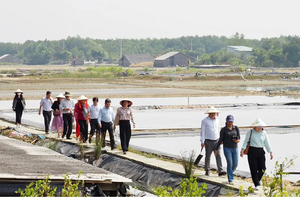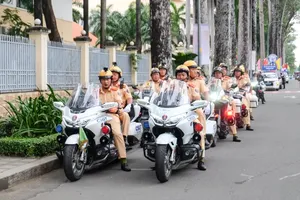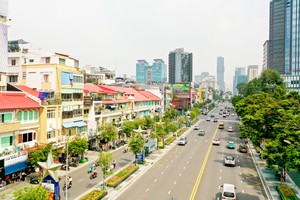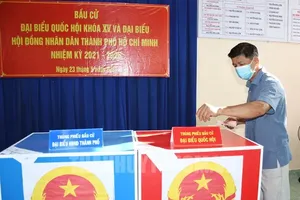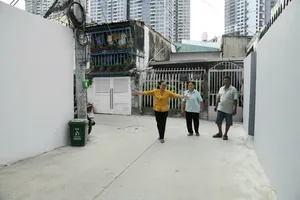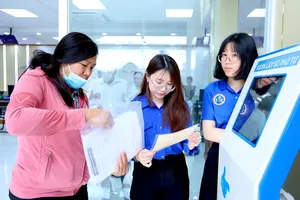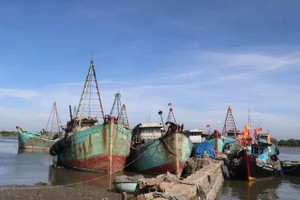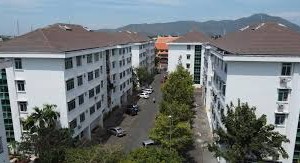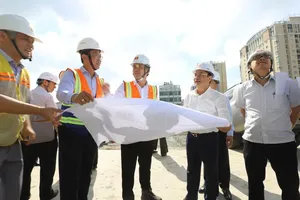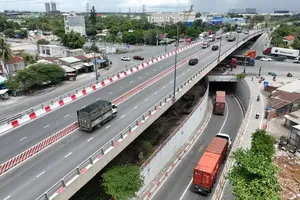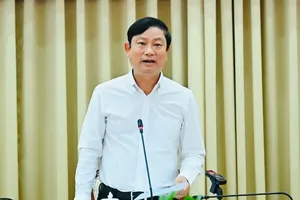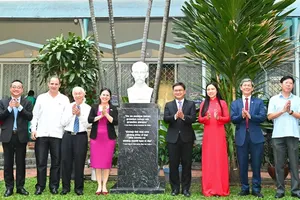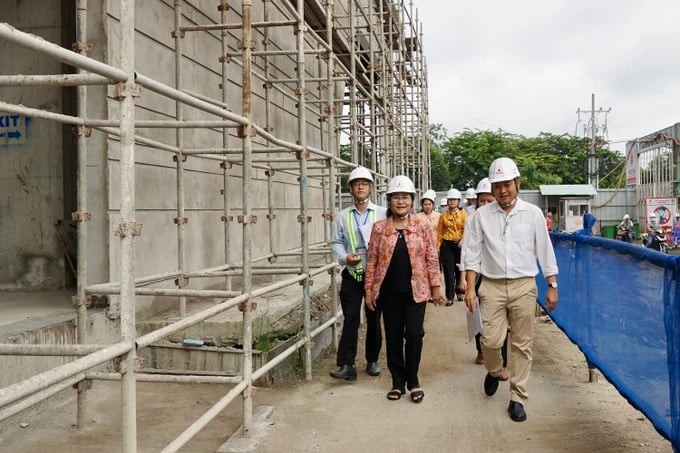
Chairwoman of the Ho Chi Minh City People's Council Nguyen Thi Le supervises the progress of a social housing project
Moreover, voters in Ho Chi Minh City commented that suspended land projects and obstacles in social housing development are major bottlenecks in the city’s social construction projects and requested the city administrations to find solutions to help people stabilize their lives.
For many years, Mr. Vo Minh Tri's family in Phuoc Thanh Commune of Cu Chi outlying district had a land use right certificate and had money but could not build a house and still had to live in a shabby house because his house is located in suspended land projects for a green planning area, an educational land planning and expansion of a road.
Being in the same situation, Mr. Le Dinh Van Phuoc in Cu Chi district’s Phuoc Vinh An Commune complained that the government is slow in resolving suspended land projects that people are very interested in project implementation and planning adjustment because this greatly affects people's lives and causes waste of land resources.
Similarly, voters in Hoc Mon District are also frustrated because their houses are located in suspended construction projects which have not been solved for many years. Among them is the DIC Industrial Park project, with a scale of more than 380 hectares. Though the city government decided not to carry out the project, it has not yet been cleared from planning.
Elsewhere in the city, Thu Duc City voters further cited that the National University planning project in Ho Chi Minh City has been suspended for 28 years but has not been implemented. Consequently, residents in Thu Duc are not granted land use documents; thus, they can’t build their dilapidated houses or sell the house when needed.
Therefore, local voters have proposed that the city pay attention to a thorough solution for the matter. According to dwellers, if the government implemented the project, it should be carried out as early as possible; otherwise, the government should clear the project so that people can sell, buy or build new houses.
Along with the frustrations about the suspended land planning, Ho Chi Minh City voters are especially interested in the development of social housing projects and worker housing. Voter Ngo Thi Bach in District 8 commented that demands for social homes have been growing whereas the social housing supply can only partially meet it. Meanwhile, the government has planned many social housing projects and implemented them for many years but scores of them have not yet been completed. Last but not least, dwellers moaned that legal procedures for buying social housing are still cumbersome; many people find it difficult to finish it. Therefore, voters proposed that the city have solutions to speed up the implementation of social housing projects.
Furthermore, during meetings with voters before the thirteen session of the tenth municipal People's Council, voters in many localities expressed special interest in the work of arranging neighborhoods and hamlets; policies on social security, health insurance, and social insurance.
To ensure the operation of an administrative apparatus in a residential quarter, voters proposed that the People's Council of Ho Chi Minh City allocate a fund for the operation of administrative apparatuses in residential quarters. According to voters’ proposals, local administrations are allowed to use the fund for paying personnel in administrative apparatuses in residential quarters.
Meanwhile, voter Nguyen Duc Nghi in District 10 suggested having plans and ways to help vulnerable people, lonely elderly people, and difficult households escape poverty. Voters believed that sustainable poverty reduction needs to be associated with universal education and vocational training.
In related news to education, the municipal People's Council has issued a policy to support tuition for preschool children and students in public high schools, and non-public and continuing education public high schools in Ho Chi Minh City in the 2022-2023 school year. Voters asked the city to continue paying attention to this policy in the 2023-2024 school year and the following years so that children of social welfare brackets and families in difficult circumstances get rid of worries about going to their schools.
